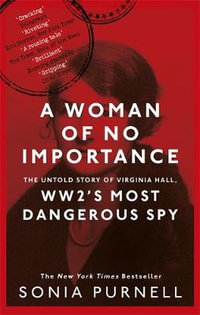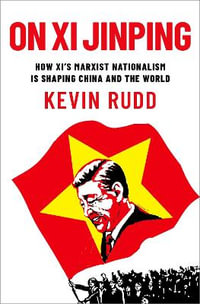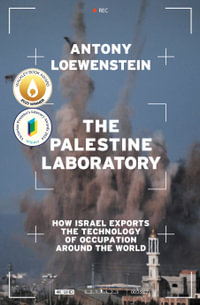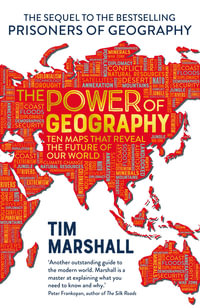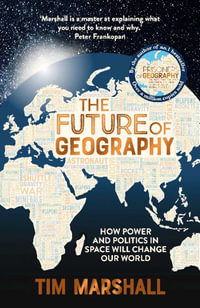
No Go Zones
How Sharia Law Is Coming to a Neighborhood Near You
By: Raheem Kassam, Nigel Farage (Foreword by)
Hardcover | 31 August 2017
At a Glance
256 Pages
18+
21.59 x 14.61 x 2.54
Hardcover
$45.50
or 4 interest-free payments of $11.38 with
orAims to ship in 10 to 15 business days
Now Raheem Kassam, a courageous reporter and editor at Breitbart.com, takes us where few journalists have dared to tread - inside the No Go Zones, revealing areas that Western governments, including the United States, don't want to admit exist within their own borders.
With compelling reporting, Kassam takes you into Islamic areas you might not even know existed - communities, neighborhoods, and whole city districts from San Bernardino, California, (a No Go Zone of the mind) to Hamtramck, Michigan (essentially an Islamic colony in the Midwest); from Malmö, Sweden, to the heart of London, England - where infidels are unwelcome, Islamic law is king, and extremism grows.
In No Go Zones, Kassam reveals:
Compelling in its reporting, shocking in its detail, Raheem Kassam's No Go Zones is one of the most frightening true stories you will read this year.
About the Author
Kassam was a devout and practicing Muslim into his late teens/early twenties, after which an exposure to radical Islamist ideas at university, and the opposite through non-Muslim friends and challenging philosophical ideas steered him the other way.
In his mid teens, Kassam was a Kamadia Saheb of his Jamat Khana in north west London. A Kamadia Saheb in Ismaili Islam is a representative of the one living Imam (the Aga Khan) for the congregation to offer prayers and ask forgiveness from. The living Imam's word is considered as theologically relevant as that of the Quran. In his early teens, Kassam engaged in political activism for the Conservative Party in the United Kingdom, running parliamentary campaigns for candidates, as well as serving on the board of the party's youth wing. He has been the Campaigns, Communications, and Marketing Director at the Henry Jackson Society think tank in London, as well as directing a project called 'Student Rights' which sought to tackle Islamist extremism on university campuses in Britain.
Kassam moved into the media sphere, running his own website 'Trending Central', also managing 'The Commentator', before being head-hunted by Chief Strategist to President Donald Trump, Stephen K. Bannon, to serve as the Editor in Chief of Breitbart London - the UK arm of Breitbart News. Kassam was seconded to the UK Independence Party where he served as Senior Advisor to party leader - 'Mr. Brexit' - Nigel Farage.
Kassam is a writing fellow at the Middle East Forum, a foreign affairs think tank in Philadelphia, as well as a Senior Distinguished Fellow at the Gatestone Institute think tank in New York City. He currently serves as Editor in Chief of Breitbart London, regularly guest hosting the Breitbart News Daily show on Sirius XM Patriot 125.
The attack on Wednesday, December 2nd had sent us hurtling up highways 15 and 215 from San Diego, equipped only with my laptop, Michelle's ageing SLR camera, and the knowledge that we would go places and ask things that "mainstream" journalists wouldn't dare.
Our first few hours on the scene were characterised by this. Police tape was easily circumvented. At one point the barricades blocking the road of the attack extended just beyond a church parking lot. So we simply drove through the parking lot and exited on the other side, right in the center of the crime scene.
Meanwhile, journalists from CBS, NBC, and almost all other news networks stood penned in half a mile away, tweeting "live shots" from a press conference that would take place in four hours time. I wanted more.
It's that drive for truth and news that brought us face-to-face with bomb disposal robots, as concerned residents looked on and police wondered how these pesky journalists had stumbled upon their follow-up operations.
It was one word: "Drive". Both literally as well as psychologically.
Get in the car, and drive. Don't be confined to the persistently delayed press conference where all you'd be treated to is a confirmation of a chain of events established hours ago. If you're lucky, a good Communications staffer will toss out a piece of color for headline writers.
Those few days we found our own color. Be it the bullet holes peppering the pavement, or the wailing mother desperate to reach her child, home alone for hours, as a result of her street being locked down. I was half-tempted to offer: "You know we can probably find a way around that roadblock?" But in situations like these you rely on luck as much you rely on intuition. Push it too much and you'll end up on the shit list, and that would have made Michelle's job as ou liaison with the police and FBI much more difficult.
In a way it is a balancing act, but when everyone else is happy to sit in the middle of the seesaw, it seems especially pioneering to tilt back and forth even just a little.
And that is precisely what we did. Rock it just enough to expose something that eventually led to much larger questions.
Questions like: "Why did the U.S. government stop monitoring an Islamic extremist group?"
Questions like: "How did Tashfeen Malik pass her background checks to get into the country?"
And questions like: "What are they teaching people in these mosques, and why is no one willing to ask even the most rudimentary questions about it?"
The cause of Farook and Malik's December attack was allegedly the mandatory Christmas Party. However, anyone familiar with terror and its ideologies will tell you Christmas is scarcely a radicalising factor. No one sees a strip of tinsel and decides to start assembling pipe bombs. I was determined to get to the root of their hatred for the country they had made their home: America. This same hatred had caused them to abandon their children, their families, and commit one of the most shocking acts of terror on the U.S. Homeland since 9/11.
It wasn't the scale or even the method that necessarily made the attack shocking. It was the fact these two people in their late twenties slaughtered those they knew; people they worked with, people they presumably exchanged pleasantries with every week. What prompts a person -- and even more gruesome, two married parents -- to be so callous that these familial and community bonds were so easily severed?
"Yeah it's definitely that one," I said again to Michelle as we sped towards the Dar Al Uloom Islamiyah mosque in the north of the city. San Bernardino was, as you can imagine, somewhat of a ghost town for those few days. Residents were in shock, palpable as they shuffled along the pavements outside the location of the attack -- the Inland Regional Center -- to place wreaths, flowers, teddy bears, flags, and light candles at the crossroads.
As we arrived, there were a few journalists who had sussed the location before us. Credit to them. But it was extraordinary to note that out of several hundred dispatched to the Inland Empire, there were scarcely over a dozen willing to quiz the Farook's religious leaders. Or so I thought.
Perhaps it is down to the difference in American and British reporting. Partly, I put it down to the fact that many of these people were simply local stringers who probably couldn't finger a jihadist if they were screaming "Allahu Akbar" in their faces.
You could sense their discomfort, their unwillingness and instinctive inability to be even mildly aggressive as we dawdled outside the mosque.
It was a Friday afternoon, and Jumu'ah prayers had just let out. Cars streamed down the palm tree-lined path from the mosque towards the road. We flagged down drivers, asking them their thoughts on the attack, whether or not they knew the couple, and if they repudiated such heinous acts of violence. Most didn't want to speak. Some grinned with a childlike fascination of seeing so many cameras -- a feeling of self-importance combined with awe and awkwardness.
And whether or not it was correct, we were badgered by police and mosque leaders not to ask questions of the congregants or "Jamaat". Perhaps this wasn't their finest public relations moment, because we demanded someone answer basic questions about what was going on in that mosque, just eight miles north of the location of the attack.
Finally, the levees broke. Mosque leaders could see we weren't going anywhere any time soon. What also became even clear relatively quickly is someone had coached them to answer questions from the media. That organisation appeared to be the Council on American Islamic Relations (CAIR), a group often linked to extremists, radical Islamists, and terror-endorsing ideologies.
We tread up the path towards the mosque, leaving the spike topped gates and police behind us. We had our phones, our recorders, and our cameras. Some poor schmucks had been lugging around full-sized broadcast cameras for days. One of the lesser perils of being a news cameraman.
Upon entry, we removed our shoes, tucked them into cubby holes in the walls, and proceeded into an anteroom before the prayer hall.
Men were ushered straight through the middle of the hall, while the women through a passage on the left. Gender segregation in 2015 in a major U.S. city for a press conference involving some of the nation's largest news outlets.
"I wonder how they treat women when there aren't cameras around," I thought.
This regressive behaviour has always made me very uneasy.
I was lucky enough to have been raised in a liberal sect of Islam, where women not only could wear whatever they liked to the mosque -- and often took full, fashionable advantage of it -- but in a sect where gender segregation was really only for show. You take the small victories where you get them.
As we waited for the show to begin, a few people hurriedly set up a row of chairs halfway towards the back left of the room.
"This is for your women," we were told.
Like hell it was.
Perhaps out of politeness or a naive courtesy, a few women with the press gravitated towards the area. "Private property, show deference" I suppose it could be summarised as.
But just minutes after the presser began, the whole row had crept forward, leaving the chairs far behind. It was good to see some defiance kicking in, but what I learned about the American press over the next few moments was truly terrifying.
A man in dark glasses with a chest-length, wirey white beard and a shawl over his head identified himself as "Dr. Nadvi", the President and founder of the Dar ul Uloom Islamiyah congregation. He opened with a prayer, before professing to speak on behalf of all Muslims of California, calling them "saddened and shocked" by the shooting just days prior.
"We stand by our fellow Americans at this time," he said, before paraphrasing Surah 5, Ayat 32 of the Quran: "Whoever kills a person, except as a punishment for murder or mischief in the land, as if he had killed all the human beings. And whoever will save a life shall be rewarded as if he saved all the human beings. This is the teachings of Islam".
The alarm bells were already ringing.
Surah 5, Ayat 32 is often cited as a get out clause for acts of terrorism. It's simply not an Islamic act, the spin doctors claim.
The verse without paraphrasing actually reads: "We ordained for the Children of Israel that if anyone slew a person - unless it be in retaliation for murder or for spreading mischief in the land - it would be as if he slew all mankind: and if anyone saved a life, it would be as if he saved the life of all humanity".
It's a subtle difference, but analysing the use of "Children of Israel" (i.e. Jewish people) and the phrase "spreading mischief" leads us to the actual intent of the Quran: a warning for the unbelievers (kaffir).
In Islamic jurisprudence (fiqh) a fasadin is a person causing "mischief", the definition of which extends to acting against Allah, and causing disorder within Muslim communities. Disobedience towards Allah is considered "fasad" according to some scholars, while Pakistan -- a crucially relevant country in the context of the Dar ul Uloom Islamiyah mosque -- has legal grounds in its Penal code the crime of fasad-fil-arz or "causing mischief on earth".
"The nerve," I thought, noting further still that they could probably get away with it in front of this audience of rookies and stringers.
Again, the balancing act. How do I ask a tough question without being turfed out? We were the only ones recording this whole thing for Breitbart News and for the world to see. I couldn't afford us to be shut down.
Dr. Nadvi's involvement didn't last long. The first softball question came: "What is the mosque's reaction to the FBI calling this an act of terrorism?" He stepped aside, allowing his son Mahmood to embark upon a statement of exculpation on behalf of Muslims all across the world.
Claiming to know Syed Farook as well as the reporter who just asked the question, and claiming not to know Tashfeen Malik at all, what I perceived as palpable disingenuity continued for another 12 minutes before I chimed in with a question about the rules for apotasy in Islam i.e. that leaving the faith requires the punishment of death.
Answer came there none.
The same paraphrasing of Surah 5, Ayat 32. The same dancing around the questions. Then a handover to someone called Roshan Abbasi, who swiftly declared: "So, you guys are OUR guests, and if we have no comment, you cannot force us to comment, thank you very much".
It was unclear to all of us in the room why someone with nothing to hide would take this approach. Now we know -- Mr. Abbasi had exchanged numerous text messages with Mr. Malik months prior, and the mosque had even hosted a wedding party for the couple despite claiming to know nothing about her.
Abbasi again went on to misquote Surah 5, Ayat 32, using completely different words to his two prior speakers, without any semblance of irony.
"There's proof that it was workplace anger. Proof," he said, perhaps forgetting that a full FBI investigation into Syed and his wife Tashfeen's internet history would reveal there was, as Director James Comey said, "radicalization by the killers and the potential inspiration by foreign terrorist organizations".
I believe you can hear the frustration in my voice on the video when I asked my next question: "What do you teach your students about the Khilafah [Islamic caliphate]?"
"I don't teach them anything about it," he responded, to which I replied: "So you don't believe in it?"
Abbassi moved away from the microphone awkwardly, stating: "I just teach how to read Arabic".
Why wouldn't he answer my question directly?
Why would the mosque elders all be reciting the same, bunk, Quranic verse?
Why did Syed Farook and Tashfeen Malik commit such an attack on their co-workers after attending a mosque run by a shady, fundamentalist sect that encourages segregation, reliance on the mosque, and why did these people all so brazenly lie about how well they knew them?
The answer, to me, is relatively simple.
No go zones are not just physical localities in the suburbs of major European cities.
They're also a mindset.
A mindset of ghettoisation and, curiously, a mindset of both supremacy and victimhood all at the same time.
What Syed Farook and Tashfeen Malik did was hive themselves off from the outside world.
That way of living as we have seen is bad enough when it is restricted to one family.
When writ large into whole communities, the effects, as you'll see in this book, are civilisation destroying.
ONE. The Unsettled Debate
TWO. What Happens in Europe
THREE. From Molenbeek, with Terror
FOUR. From Sweden, with Rape
FIVE. From France, with Hate
SIX. From the United Kingdom, with Sharia
SEVEN. From San Bernardino, with Lies
EIGHT. From Detroit, with the Call to Prayer
NINE. From America, with Radical Islam
EPILOGUE
ACKNOWLEDGMENTS
NOTES
ISBN: 9781621576808
ISBN-10: 1621576809
Published: 31st August 2017
Format: Hardcover
Language: English
Number of Pages: 256
Audience: General Adult
For Ages: 18+ years old
Publisher: REGNERY PUB INC
Country of Publication: US
Dimensions (cm): 21.59 x 14.61 x 2.54
Weight (kg): 0.43
Shipping
| Standard Shipping | Express Shipping | |
|---|---|---|
| Metro postcodes: | $9.99 | $14.95 |
| Regional postcodes: | $9.99 | $14.95 |
| Rural postcodes: | $9.99 | $14.95 |
How to return your order
At Booktopia, we offer hassle-free returns in accordance with our returns policy. If you wish to return an item, please get in touch with Booktopia Customer Care.
Additional postage charges may be applicable.
Defective items
If there is a problem with any of the items received for your order then the Booktopia Customer Care team is ready to assist you.
For more info please visit our Help Centre.
You Can Find This Book In
This product is categorised by
- Non-FictionPolitics & GovernmentInternational Relations
- Non-FictionPolitics & GovernmentPolitical ActivismTerrorism
- Non-FictionPolitics & GovernmentPolitical Ideologies & MovementsConservatism & Right-of-Centre Democratic Ideologies
- Non-FictionReligion & BeliefsIslam
- Non-FictionSociety & CultureSocial GroupsSocial & Cultural Aspects of Religious GroupsIslamic Studies




